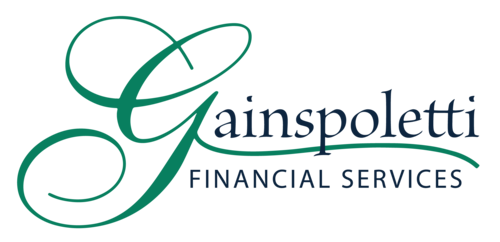Concerned about your upcoming retirement tax obligations? Although seniors frequently worry about this, you can drastically lower your tax burden with proper retirement planning.
In this article, we’ll explore several expert strategies that can help you slash your taxes in retirement.
Consider opening a Roth IRA
The easiest strategy to lessen your tax burden in retirement is to invest in Roth accounts. Since the money for these accounts was paid in after taxes, withdrawals made in retirement are tax-free. Roth IRAs, in particular, are an excellent choice for retirement savings.
Aside from tax-free withdrawals, Roth IRAs have several other benefits. For instance, there are no required minimum distributions (RMDs), so you can leave your money in the account for as long as you wish. This makes it an excellent option if you want to leave an inheritance to your loved ones.
Keep in mind that there are income limits for contributing to a Roth IRA.
Spend money on charity
Making charitable contributions is another option to lessen your tax liability in retirement. You may deduct the amount of your donation from your taxable income when you make a gift to a qualified charity. This can help to lower your overall tax bill.
Making charitable contributions in retirement can be done in a number of ways. One way is to donate appreciated assets, like stocks or mutual funds, to a charity. By doing this, you can save money on capital gains taxes on the appreciation. Another way is to create a charitable remainder trust, which lets you donate assets to a good cause while keeping a steady income stream for yourself.
Invest in Tax-Free Bonds
Another excellent way to slash your tax burden in retirement is by investing in tax-free bonds. These bonds are issued by state and local governments and are not subject to federal income taxes. In some cases, they may also be exempt from state and local taxes.
While tax-free bonds typically offer lower yields than taxable bonds, the tax savings can make them an attractive choice for retirees. This is also an excellent option for those in higher tax brackets who are looking to reduce their tax burden.
Avoid the Early Withdrawal Penalty
If you need to withdraw money from your retirement accounts before age 59 1/2, you may be subject to an early withdrawal penalty. This penalty can be as high as 10% of the amount withdrawn, in addition to any taxes owed.
To avoid the early withdrawal penalty, it’s important to plan ahead. Make sure you have enough savings in taxable accounts to cover any unexpected expenses. As previously mentioned, you may also want to consider setting up a Roth IRA conversion ladder, which allows you to access your retirement savings without penalty.
Consider Long-Term Investments
It’s important to invest for the long-term, not the short-term. This means focusing on investments that will provide steady income and growth over time.
One option for long-term investing is a diversified portfolio of low-cost index funds. These funds provide exposure to a broad range of asset classes and have historically outperformed actively managed funds. They also have lower fees, which can help to reduce your overall tax burden.
Another option is to invest in real estate. Rental properties can provide a steady stream of income and may offer tax benefits such as depreciation deductions. However, real estate investing is not for everyone and requires careful consideration and planning.
At Gainspoletti Financial Services, we understand that planning for retirement can be overwhelming. That’s why we offer comprehensive financial planning services to help you reach your retirement goals.
Contact us today to learn how we can help you slash your taxes in retirement and enjoy the lifestyle you want and deserve.
Earnings withdrawn prior to 59 1/2 would be subject to income taxes.
Roth IRA owners must be 59½ or older and have held the IRA for five years before tax-free withdrawals are permitted.Like Traditional IRAs, contribution limits apply to Roth IRAs. In addition, with a Roth IRA, your allowable contribution may be reduced or eliminated if your annual income exceeds certain limits. Contributions to a Roth IRA are never tax deductible, but if certain conditions are met, distributions will be completely income tax free.
Unless certain criteria are met, Roth IRA owners must be 59½ or older and have held the IRA for five years before tax-free withdrawals are permitted. Additionally, each converted amount may be subject to its own five-year holding period. Converting a traditional IRA into a Roth IRA has tax implications. Investors should consult a tax advisor before deciding to do a conversion.
IRA tax deductibility and contribution eligibility may be restricted if your income exceeds certain limits, please consult with a financial professional for more information.Income from municipal bonds is not subject to federal income taxation; however, it may be subject to state and local taxes and, for certain investors, to the alternative minimum tax. Income from taxable municipal bonds is subject to federal income taxation, and it may be subject to state and local taxes.
Municipal securities typically provide a lower yield than comparably rated taxable investments in consideration of their tax-advantaged status. Investments in municipal securities may not be appropriate for all investors, particularly those who do not stand to benefit from the tax status of the investment. Please consult an income tax professional to assess the impact of holding such securities on your tax liability.The foregoing information has been obtained from sources considered to be reliable, but we do not guarantee that it is accurate or complete, it is not a statement of all available data necessary for making an investment decision, and it does not constitute a recommendation. Any opinions are those of Gainspoletti Financial Services and not necessarily those of Raymond James.

